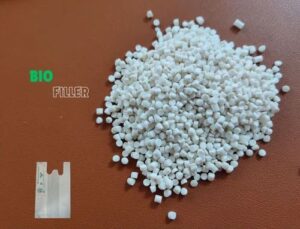Bio-Degradable Fillers Product Description
Bio-degradable fillers are innovative materials designed to replace traditional fillers in various applications, particularly in the packaging, construction, and automotive industries. These fillers are made from natural, renewable resources, ensuring that they break down naturally over time, thus minimizing environmental impact. They are engineered to provide similar performance characteristics to conventional fillers while promoting sustainability. The use of bio-degradable fillers is becoming increasingly popular as industries seek to reduce their carbon footprint and comply with environmental regulations.
Uses of Bio-Degradable Fillers
- Packaging: Used in the production of eco-friendly packaging materials, such as biodegradable bags, containers, and cushioning materials.
- Construction: Incorporated into building materials like composites, insulation, and concrete to enhance performance while reducing environmental impact.
- Automotive: Utilized in the manufacturing of interior components, dashboards, and other parts to reduce weight and improve sustainability.
- Consumer Goods: Found in products like toys, household items, and personal care products, providing a greener alternative to traditional fillers.
- Agriculture: Used in biodegradable plant pots and seedling trays, promoting sustainable farming practices.
Technical Data
| Property | Value |
|---|---|
| Material Composition | Starch, cellulose, and other natural polymers |
| Biodegradability | 90% degradation within 6 months in composting conditions |
| Density | 0.5 – 1.2 g/cm³ |
| Moisture Absorption | 5% – 15% |
| Tensile Strength | 20 – 30 MPa |
| Thermal Stability | Up to 200°C |
| pH Level | Neutral (6-7) |
| Color | Natural (can be dyed) |
| Applications | Packaging, construction, automotive, consumer goods, agriculture |
Key Benefits
- Environmentally Friendly: Reduces plastic waste and promotes sustainability.
- Versatile: Suitable for a wide range of applications across various industries.
- Performance: Offers comparable strength and durability to traditional fillers.
- Cost-Effective: Can reduce overall production costs by utilizing renewable resources.
By integrating bio-degradable fillers into their products, companies can not only enhance their sustainability efforts but also appeal to environmentally conscious consumers.

